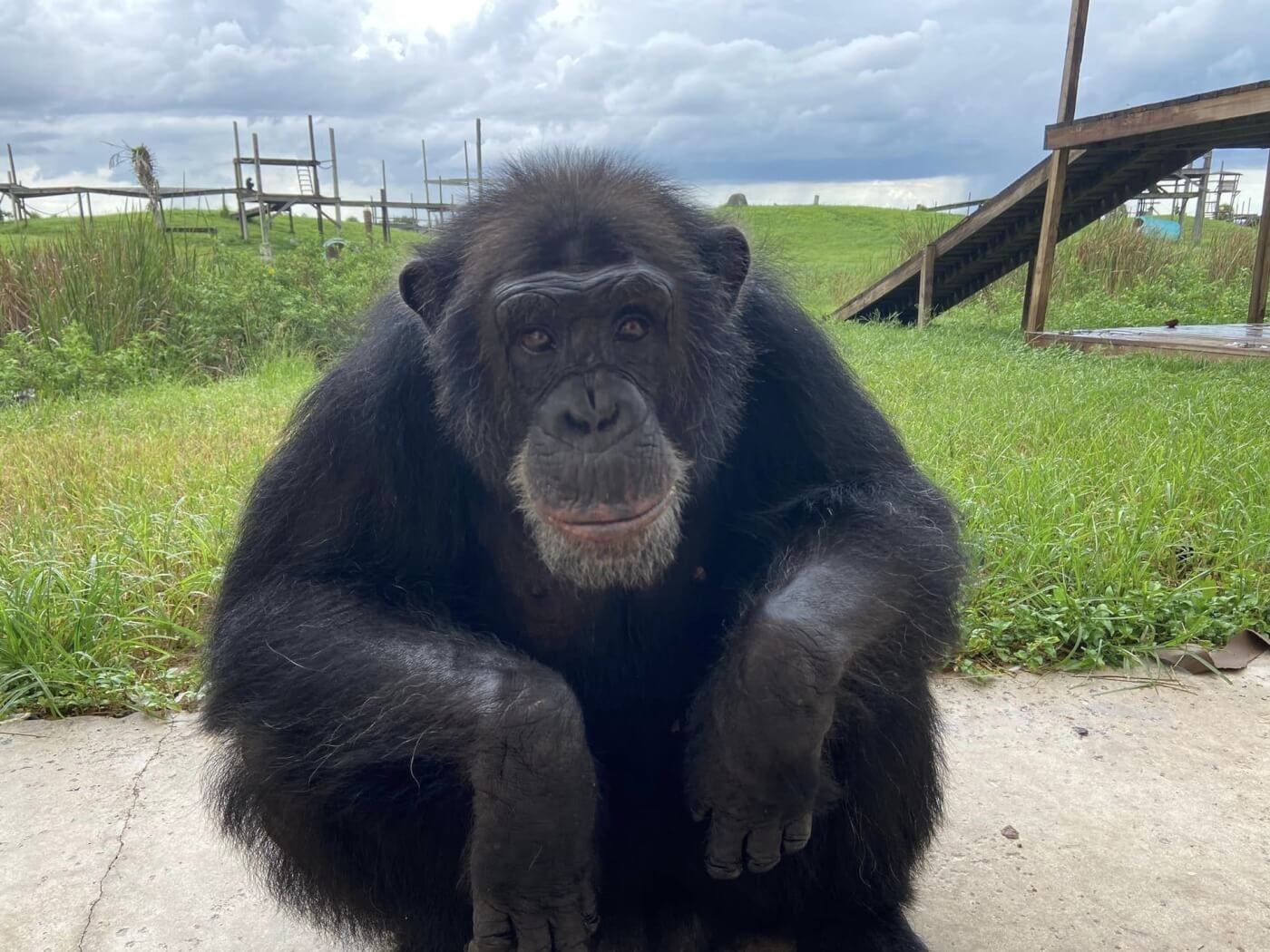Why the Captive Primate Safety Act is critical for protecting primates in the United States
Humans like to pretend that we are different from other animals, but when it comes to primates, there is arguably more that unites us than divides us. Chimpanzees, for instance, share 98% of human DNA, and many of their behaviors, like forging friendships or understanding right from wrong, mirror our own. So it's both puzzling and saddening that they continue to find themselves at the receiving end of relentless abuse from our species.
Take, for instance, the four-part HBO documentary Chimp Crazy by director Eric Goode. The series outlines the seedy downsides of private primate ownership. Focusing on former nurse turned wild-animal broker Tonia Haddix, who refers to herself as “the Dolly Parton of chimps”, the documentary shows her keeping seven captive animals who were exploited in the entertainment industry as photo props as well as for films and commercials.
Unveiling the reality of the animals treated as playthings, the documentary has sparked calls for the bipartisan Captive Primate Safety Act to be written into law – criminalizing the purchase and transportation of primates across state lines, as well as banning contact between primates and the public. Currently, it is already illegal to own chimpanzees and other primates as pets in some states, but over half of US states, such as Kansas, Texas, Idaho, and Alabama, still allow these animals to be privately owned in some form.
What's the issue with owning a chimp?
Brogoitti brought Buck to her home in Pendleton, Oregon, where he lived for the rest of his life, was mostly unable to exhibit his natural behavior, and was isolated from other members of his own species.
The exotic pet trade traumatizes young animals by tearing them away from their mothers too soon, in order to be sold as pets. Their complex needs can never be met in a human home, and often these animals suffer in their inadequate living conditions. They are often fed unsuitable diets and are subjected to the constant mental strain of isolation from other members of their species. A lifetime of this stress can lead the desperate animals to lash out, as was the case of Buck – one of the animals portrayed in Chimp Crazy. Separated from his mother at just 21 days old, Buck spent the rest of his life in his owner's Oregon home. He never interacted with other chimpanzees and was the subject of a PETA legal complaint against his owner for several breaches of state law. An investigation was launched, but before PETA got the chance to move Buck to an accredited sanctuary, he was shot and killed after he attacked his owner's daughter. His story is not the only one, and such tragedies could be avoided by passing the Captive Primate Safety Act.
And then there is Tonka, perhaps the most famous chimp of the series. From the first episode, viewers can follow animal rights organization PETA's search for this chimpanzee, who Haddix claims has died. A focal point in the documentary is PETA's years-long lawsuit against breeding facility Missouri Primate Foundation, where Haddix started out as a volunteer and ended up taking it over from breeder Connie Casey. Tonka was one of the animals to whom she was the most attached. Appearing in online court, she claimed to have had him cremated. The second episode ends with the reveal that Tonka is alive, trapped in Haddix' basement. This kind of occurrence would be less likely to happen with the Captive Primate Act in place, as existing animals would have to be registered with the authorities. PETA enlisted the help of actor Alan Cumming, who was involved in the campaign for Tonka's release, and today Tonka lives at the Save the Chimps sanctuary in Florida. Yet, Haddix remains undeterred.
“After Tonka was confiscated from [Tonya Haddix], she went into a cage with another chimpanzee and she was attacked herself. But she still says that she would get another chimpanzee in a heartbeat,” said Brittany Peet, General Counsel of Captive Animal Law Enforcement at PETA. “I mean, it's an addiction, an obsession, a sickness that these people seem to have that, you know, they don't think that it could happen to them. And even when it does, they are still in denial about it.”
“I mean, it’s an addiction, an obsession, a sickness that these people seem to have that, you know, they don’t think that it could happen to them. And even when it does, they are still in denial about it.”
Tonka at Save the Chimps. Credit: Save the Chimps
Peet is hopeful that Chimp Crazy will stir enough momentum to get the Captive Primate Safety Act passed. She likens it to how Tiger King helped push the Big Cat Public Safety Act into law: “The documentary shows that confining highly intelligent apes and monkeys to human homes or roadside zoos is not only cruel, but extremely dangerous,” Peet told the Species Unite podcast.
She also reminds of the urgency to pass the Act. “Chimp Crazy shows that confining highly intelligent, social apes and monkeys to human homes or seedy roadside zoos is not only cruel but also extremely dangerous.”
How can animal lovers get active to help these animals?
Peet advises to get in touch with your elected officials and make your voice heard in favor of the Act: “PETA encourages everyone who was moved by the tragic stories featured in Chimp Crazy to contact their legislators and urge them to support the Captive Primate Safety Act.”
Species Unite is among the animal advocates fighting for the passage of the Captive Primate Safety Act. Please sign and share our petition in support of the legislation.
Whistleblowers with information about captive chimpanzees are encouraged to contact PETA here.
Listen to the full podcast episode: S11. E21: Chimp Crazy: Brittany Peet: The Attorney here.
Written by Sascha Camilli
Sascha Camilli is a writer, speaker and vegan fashion expert. She founded the world's first digital vegan fashion magazine Vilda, and is the author of Vegan Style: Your Plant-Based Guide to Beauty, Fashion, Home & Travel. Her podcast, Catwalk Rebel, is out now.
Want to write for Species Unite? We are looking for well-written stories focusing on content that informs, inspires, and engages our audience with topics surrounding animal rights.
We Have A Favor To Ask…
Species Unite amplifies well-researched solutions to some of the most abusive animal industries operating today.
At this crucial moment, with worldwide momentum for change building, it’s vital we share these animal-free solutions with the world - and we need your help.
We’re a nonprofit, and so to keep sharing these solutions, we’re relying on you - with your support, we can continue our essential work in growing a powerful community of animal advocates this year.







The 30-acre lab closed after decades spent experimenting on dogs and cats. Now, an animal welfare charity has stepped in to make the space into an animal sanctuary for ex-lab animals.